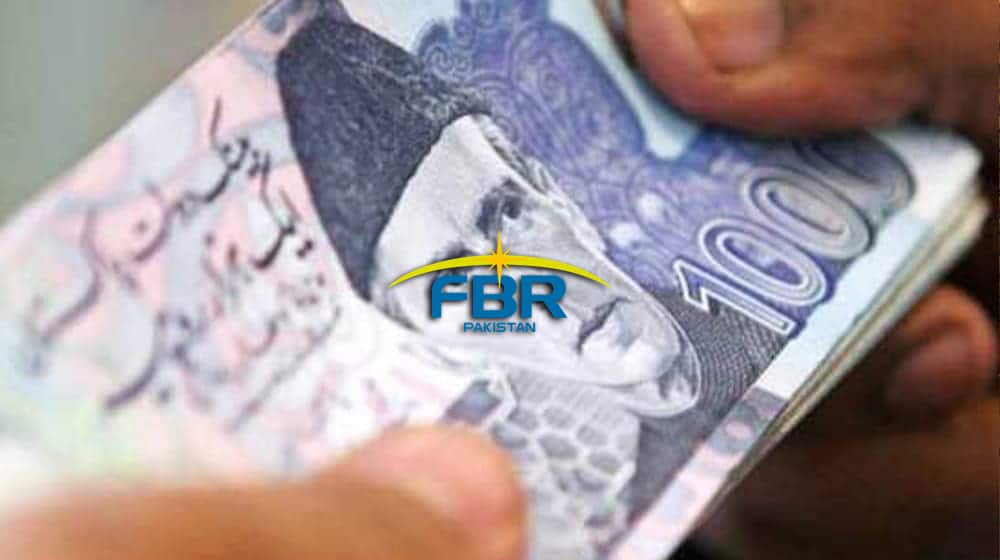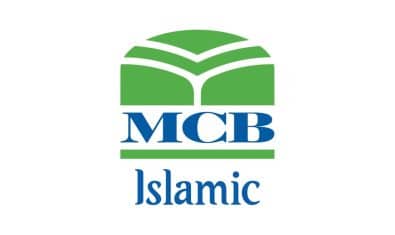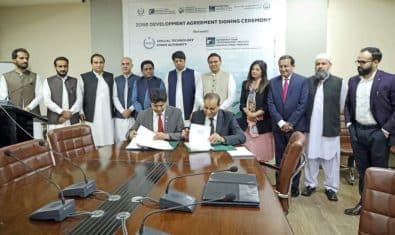The Federal Board of Revenue (FBR) has violated a decision of the Economic Coordination Committee (ECC) of the Cabinet by delaying the processing of the cases of exporters for availing concessionary tariff regime.
Federal Tax Ombudsman issued an order on Friday against the FBR.
The FTO order revealed that the ECC had directed the FBR, Ministry of Commerce, and other stakeholders to devise a standard operating procedure (SOP) for enrolment of registered persons under the export-oriented sectors (erstwhile zero-rated sectors) to qualify concessionary regime of electricity, regasified liquefied natural gas (RLNG) and gas tariff.
Under the scheme, the Export-Oriented Sectors Registration Cell (ESRC) was established and mandated to examine the particulars and recommendations of the respective Associations and counter-verify particulars of the taxpayers, including declarations in the registration profile.
The said circular 4 of 2020 though provides that discrepancies spotted by ESRC during scrutiny/verification of data forwarded by concerned trade associations with the registration profile maintained by FBR, will be referred to field formation for a ground check, report, and recommendation, yet the complainant alleges that instead of expeditious processing of the claims of export concerns ESRC has indulged into an unauthorized exercise which tantamount to audit, FTO said.
It has been observed that in several cases, after the removal of objections raised by ESRC, the cases were recommended for concessionary tariff, but the delay caused in such cases took a heavy toll on exporters as they had to suffer the burden of standard tariff during the period of pendency of case at ESRC.
Understandably this regime is exposed to the threats of misstatements, misdeclarations, and even tax fraud, but such risks must not overshadow the underlying priority of ECC. Cases suffering from some procedural lapses and other discrepancies in return profile need to be shared with concerned field formations having legal jurisdiction & powers to address the said hazards through legal ways & means, the FTO order said.
The export sector, being the lifeline for Pakistan’s economy, merits the highest attention, compassion, and care. By no means should it be hostage to any delay due to routine official rigmarole, it said.
During hearings, the complainants vehemently reiterated their allegations and shared details of delay caused by ESRC in forwarding their cases to the Ministry of Commerce. They also agitated that during the time taken by ESRC, they had to pay standard tariffs, which not only put an extra burden on exporters, but it reduced their competitiveness in the market as well.
FTO ruled that the ECC is the highest governmental forum on economic issues. It is constituted in terms of rule 17(2) of the Rules of Business, 1973, and normally, it is headed by Minister for Finance and Revenue, with Ministers for Commerce, Industries & Production, National Food Security and Research, and Minister for Planning, Development and Special Initiatives as members. This committee, after an exhaustive meeting in 2020, had decided to evolve & enforce the Concessionary Tariffs regime for major export sectors to ensure their competitiveness in the international market. Resultantly for expeditious processing of the cases of qualifying units, a special cell (ESRC) was formed at FBR. While doing it FBR’s field formations, holding jurisdiction over cases of export units, qualifying under this regime, were intentionally kept outside the recommendatory process. Instead, concerned trade associations were engaged for the initial identification of qualifying cases, and then at FBR headquarters, an exclusive & designated cell was created for expeditious processing. This intent of the premier policy-making committee needs to be translated into a workable model shedding all inertia and bureaucratic formalism. ESRC is bound to strictly follow ECC’s decision both in letter and spirit. Delay in processing on any pretext or excuse would defeat the national policy on exports.
The findings of the FTO revealed that the instant case facts indicate that while processing the case of complainants, ESRC has failed to conduct the proceedings in the spirit envisaged by ECC.
The ESRC, instead of forwarding the case to the Ministry of Commerce, referred the case of the complainant to the Large Taxpayers’ Office (LTO) Karachi on 19 April 2022 and till 8 June 2022, there was unabated delay. Ultimately this case was forwarded onwards on 22 June 2022 only after the intervention of FTO. Such a delay, inattention, and ineptitude are tantamount to maladministration in terms of section 2(3)(ii) of FTO Ordinance, 2000.
FTO has directed the FBR to ensure that cases, received by ESRC from trade associations are processed on a fast track, conducting proceedings on a day-to-day basis. The ESRC strictly confines itself to the dictates of Circular No. 4 of 2020 and processes the cases without any delay, forestalling any irretrievable loss to the exporters. Discrepancies, if any observed by ESRC during the processing, may be shared with the concerned field formations without delaying the process.
Cases of glaring Tax fraud may be shared with the concerned Trade bodies, Inland Revenue (IR) field formations transparently and fairly, and FTO directed by FBR. Instead of indulging in time-consuming correspondence, ESRC must hold frequent consultative sessions and meetings with concerned Trade associations for expeditious processing; and report compliance on monthly basis, the FTO order added.





















